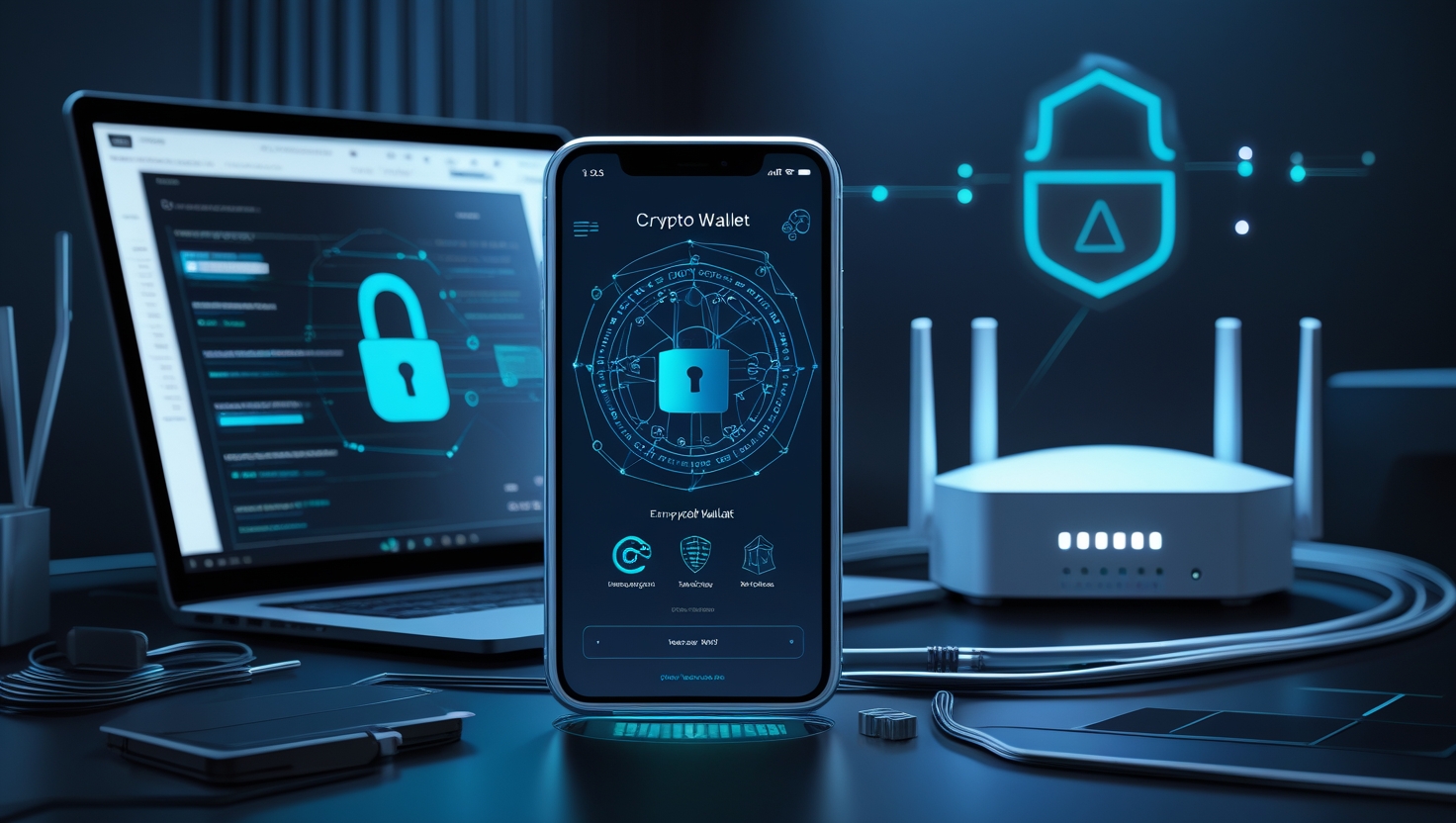How to Make Crypto Wallet More Private: Boost Your Cryptocurrency Privacy
In the world of cryptocurrencies, privacy and security are key. With hackers, scammers, and other malicious actors lurking around, it’s essential to take steps to make your crypto wallet more private. But how do you achieve this level of privacy while still enjoying the benefits of a digital wallet? In this article, we will walk you through simple yet powerful methods to enhance cryptocurrency privacy and protect your digital assets.
Why Cryptocurrency Privacy is Important
Before diving into how to make your crypto wallet more private, let’s understand why privacy is crucial in the crypto world.
- Protection from Surveillance: The blockchain is public, meaning transactions are visible to everyone. If your wallet is linked to your real-world identity, your activity is at risk of being tracked.
- Preventing Scams and Hacks: With your crypto security at stake, maintaining privacy reduces the chances of hackers targeting you. If someone knows too much about your wallet, they may try to scam you or breach your wallet.
- Regulatory Concerns: Many people want to keep their private crypto transactions to avoid unnecessary government intervention or taxation.
By implementing privacy practices, you reduce the risk of exposure and can have a more secure and enjoyable crypto experience.
Use a Privacy-Focused Wallet
One of the first steps to make your crypto wallet more private is to choose a wallet that emphasizes privacy. Many popular wallets like Metamask and Coinbase are convenient but often require personal details. However, if privacy is your priority, consider using wallets that offer advanced privacy features.
- Samourai Wallet: A private crypto wallet that allows you to send and receive transactions anonymously. It uses Tor to anonymize your IP address and supports coin mixing to prevent traceability.
- Wasabi Wallet: Wasabi focuses on privacy by using the CoinJoin method, which mixes your transactions with others to make it harder for anyone to track your funds.
- Electrum: An open-source wallet with features like the ability to use a Tor network for an extra layer of privacy.
Enable Two-Factor Authentication (2FA)
Securing your crypto wallet with two-factor authentication is another critical step. This adds an extra layer of security to ensure that even if someone gets access to your wallet password, they still need to verify their identity through another step (such as a phone app or email verification).
- Use Google Authenticator or Authy for an easy-to-set-up 2FA process.
- Some wallets also offer biometric 2FA, such as fingerprint or facial recognition, which adds even more security.
Utilize a VPN for Enhanced Privacy
A VPN (Virtual Private Network) allows you to hide your real-world IP address and encrypt your internet traffic. This prevents hackers and other entities from tracking your crypto wallet activity based on your IP address.
- ExpressVPN and NordVPN are excellent options for maintaining cryptocurrency privacy while browsing or transacting.
- Always use a VPN when accessing your wallet or making transactions to ensure that your connection is secure and untraceable.
Avoid Linking Your Wallet to Personal Information
When creating a crypto wallet, it’s tempting to link it to your personal information. However, this can put your privacy at risk.
- Use pseudonyms: Instead of using your real name, create pseudonyms for your wallets to help keep your identity separate from your crypto activities.
- Separate Wallets for Different Purposes: If possible, create separate wallets for different types of transactions (personal, business, investments). This can help further obscure your identity and reduce the risk of anyone tracking your entire portfolio.
Use Privacy Coins
Some cryptocurrencies are designed specifically to enhance privacy. These privacy coins have advanced encryption techniques that make transactions nearly impossible to trace.
- Monero (XMR): Monero is a popular privacy coin that uses ring signatures and stealth addresses to ensure that the transaction details (amount, sender, and receiver) are completely private.
- Zcash (ZEC): Zcash offers an option for shielded transactions, meaning you can hide the transaction details and keep them completely private.
By using these coins for private transactions, you ensure that your identity remains hidden while enjoying the benefits of cryptocurrency.
Coin Mixing Services for Anonymity
Coin mixing services can make crypto transactions more private by combining your coins with others, making it difficult for anyone to trace the origin of funds.
- BestMixer.io and CoinJoin are popular mixing services. They help break the chain of transactions and add layers of privacy.
- Mixing coins may incur a small fee, but it’s an effective way to keep your transactions anonymous.
Maintain Good Operational Security (OpSec)
Operational security (OpSec) refers to keeping your digital footprint as small as possible. The less information you share online, the more private your crypto wallet will be.
- Avoid sharing wallet addresses or public details of your holdings on social media.
- Be cautious when sharing details about your wallet’s activities in online forums or groups. Even innocent conversations can expose you to risks.
Regularly Update Your Wallet’s Security Features
Crypto wallets, like any other software, need to be updated regularly to ensure that security holes are patched. Always keep your wallet’s software up-to-date, especially if the developers release a privacy or security update.
- Enable automatic updates if your wallet supports it.
- Check for software updates regularly, and install them immediately.
Conclusion
To make your crypto wallet more private, you must implement a range of security features, use privacy-focused wallets, and adopt privacy practices such as using VPNs, coin mixing services, and privacy coins. By following the steps outlined in this article, you can significantly reduce the risks associated with cryptocurrency transactions and enjoy a higher level of cryptocurrency privacy.










